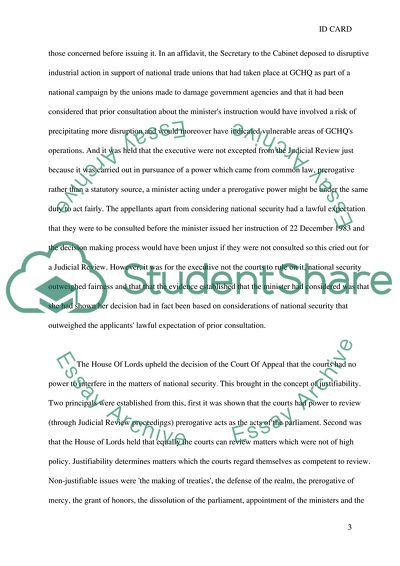Cite this document
(Biometric ID cards Essay Example | Topics and Well Written Essays - 1750 words, n.d.)
Biometric ID cards Essay Example | Topics and Well Written Essays - 1750 words. https://studentshare.org/law/1755095-the-gouvernment-of-a-lare-european-country-wants-to-introduce-a-new-biometric-id-card-system-for-controling-access-and-ensuring-national-security-using-existing-literature-and-data-analyse-the-effectiveness-of-such-a-system-and-evaluate-claims-that-it-w
Biometric ID cards Essay Example | Topics and Well Written Essays - 1750 words. https://studentshare.org/law/1755095-the-gouvernment-of-a-lare-european-country-wants-to-introduce-a-new-biometric-id-card-system-for-controling-access-and-ensuring-national-security-using-existing-literature-and-data-analyse-the-effectiveness-of-such-a-system-and-evaluate-claims-that-it-w
(Biometric ID Cards Essay Example | Topics and Well Written Essays - 1750 Words)
Biometric ID Cards Essay Example | Topics and Well Written Essays - 1750 Words. https://studentshare.org/law/1755095-the-gouvernment-of-a-lare-european-country-wants-to-introduce-a-new-biometric-id-card-system-for-controling-access-and-ensuring-national-security-using-existing-literature-and-data-analyse-the-effectiveness-of-such-a-system-and-evaluate-claims-that-it-w.
Biometric ID Cards Essay Example | Topics and Well Written Essays - 1750 Words. https://studentshare.org/law/1755095-the-gouvernment-of-a-lare-european-country-wants-to-introduce-a-new-biometric-id-card-system-for-controling-access-and-ensuring-national-security-using-existing-literature-and-data-analyse-the-effectiveness-of-such-a-system-and-evaluate-claims-that-it-w.
“Biometric ID Cards Essay Example | Topics and Well Written Essays - 1750 Words”. https://studentshare.org/law/1755095-the-gouvernment-of-a-lare-european-country-wants-to-introduce-a-new-biometric-id-card-system-for-controling-access-and-ensuring-national-security-using-existing-literature-and-data-analyse-the-effectiveness-of-such-a-system-and-evaluate-claims-that-it-w.


